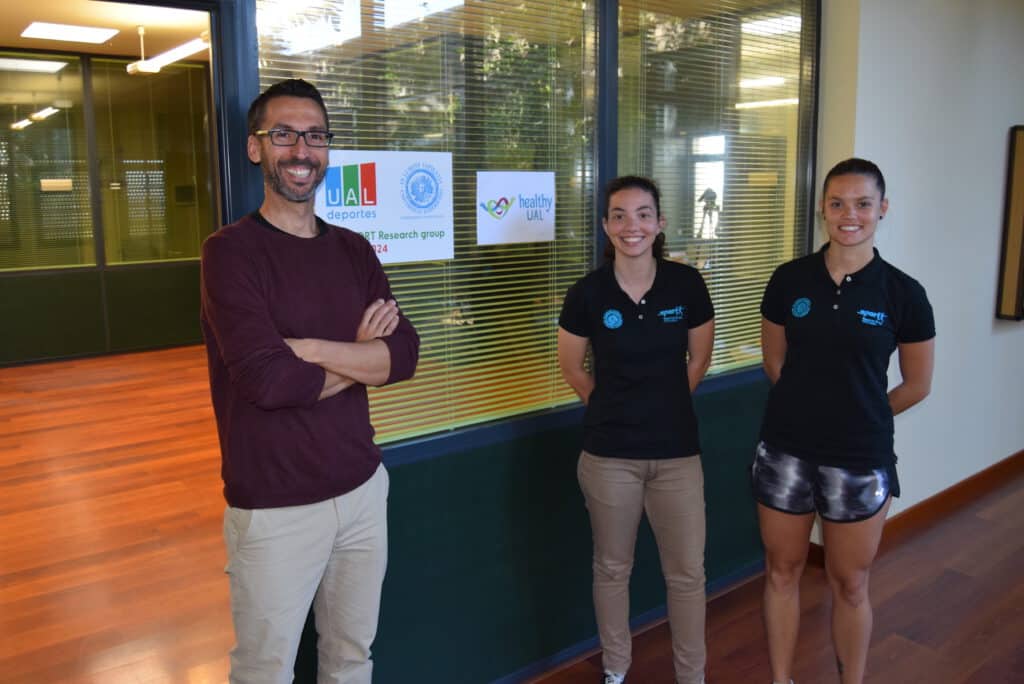Sleep quality, Mediterranean diet and cardiorespiratory endurance influence academic performance and cognition during adolescence. A new study conducted in Spain reveals new effects of regular physical activity and the adoption of a healthy lifestyle on physical and cognitive health at this stage.
Researchers from the University Jaume I (UJI) of Castellón, under the direction of Diego Moliner, lead a project whose objective is to analyze the influence of physical activity on health, psychological well-being and academic performance during compulsory secondary education (ESO). Experts from the universities of Castilla-La Mancha, Cádiz, Zaragoza, Almería and Jaume I are participating in the analysis.
The team has conducted a continuous follow-up for three years to learn how the evolution of different health-related habits (physical activity, diet, physical fitness and sleep) affect the physical health of adolescents, their levels of psychological well-being and their academic performance.
The follow-up has been carried out through the application of validated questionnaires, blood tests, physical fitness tests, anthropometric assessments and the use of wrist accelerometers that allow objective measurement of the adolescents' physical activity and sleep patterns.
One of the studies reveals that sleep quality is more closely related to academic performance than sleep duration and Internet use time.
The data are being analyzed using different statistical techniques in order to determine which factors have a greater or lesser influence on the physical, psychological and cognitive development of adolescents. The results have been published in various scientific journals.
One of the papers, published in Jornal de Pediatria, reveals that the quality of sleep is more related to academic performance than its duration and that the time spent using the Internet is also involved in the association between sleep quality and academic performance. It is essential to control the time spent using new technologies," says Mireia Adelantado-Renau, from the UJI, "both to promote good rest and to improve academic performance".
A second article, published in Acta PaediatricaThe study found that adherence to the Mediterranean diet improves academic performance thanks, among other mechanisms, to an improvement in the quality of sleep. Finally, a third study published in European Journal of Pediatricsshows a positive relationship between cardiorespiratory endurance capacity and academic performance in adolescents, suggesting that body composition has a key mediating effect in this association.
Public health implications
The research group considers that "if the results obtained are confirmed in future studies, they could have important implications from an educational and public health point of view", since they establish easily applicable intervention processes to improve the development of adolescents and could help to "prevent school failure by promoting healthy habits".
Therefore, families, educators and policy makers "should take these results into account to turn schools into health-promoting centers and create supportive educational programs that consider factors such as nutrition, sleep and physical activity as tools for improving academic performance and overall development in childhood and adolescence," concludes Diego Moliner.
Bibliographic references:
The effect of sleep quality on academic performance is mediated by Internet use time: DADOS study. Mireia Adelantado-Renau, Ana Díez-Fernandez, Maria Reyes Beltran-Valls, Alberto Soriano-Maldonado, Diego Moliner-Urdiales. Jornal de Pediatria; online pp. 1-9. (2018). ISSN: 0021-7557
The influence of adherence to the Mediterranean diet on academic performance is mediated by sleep quality in adolescents. Mireia Adelantado-Renau, Maria Reyes Beltran-Valls, Irene Esteban-Cornejo, Vicente Martínez-Vizcaíno, Alba Maria Santaliestra-Pasías, Diego Moliner-Urdiales. Acta Paediatrica (2018). doi: 10.1111/apa.14472.
Fitness and academic performance in adolescents. The mediating role of leptin: DADOS study.. Adelantado-Renau M, Jiménez-Pavón D, Beltran-Valls MR, Ponce-González JG, Chiva-Bartoll Ó, Moliner-Urdiales D. Eur J Pediatr 2018;177:1555-63. doi:10.1007/s00431-018-3213-z.
The DADOS project has been funded by the Ministry of Economy and Competitiveness and the Universitat Jaume I of Castelló, and carried out by the LIFE research group of the UJI in collaboration with researchers from the University of Almeria, University of Castilla-La Mancha, University of Cadiz and the University of Zaragoza.



